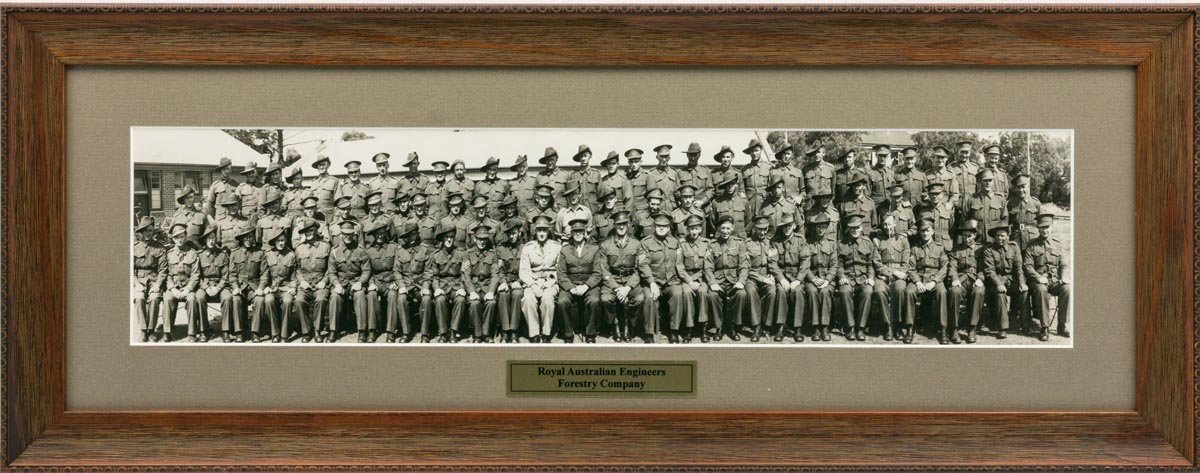Forestry Companies - WW2
P McHugh
Two Forestry Companies were quickly raised in 1940 as part of the Royal Australian Engineers (RAE).
The first Company (2/1) was in Sydney with men from NSW, Queensland and South Australia led by Captain Cyril Richard Cole, a professional forester from the Australian Capital Territory. The second Company (2/2) was raised in Melbourne under the command of Captain Andrew Leonard (Ben) Benallack from the Forests Commission Victoria, with soldiers recruited from Victoria, Tasmania and Western Australia. Each unit included men who had served in the war of 1914-18.
The two Companies sailed from Fremantle on the "Stratheden" on 30 May 1940 destined for the Suez Canal but were diverted to England via Cape Town after France fell to Germany and the subsequent Dunkirk evacuation. The troops landed in July and undertook further military training in Alton, southern England. They were immediately positioned to guard against invasion while the Battle of Britain was in full fury overhead.

Photograph probably taken in 1940 in Australia before embarkation (Source: P McHugh) : Forestry Companies (2/1 and 2/2) - Royal Australian Engineers. The CO's of each Company were Capt CR Cole (2/1) and Capt AL Benallack (2/2). Both are thought to be in this photo.
